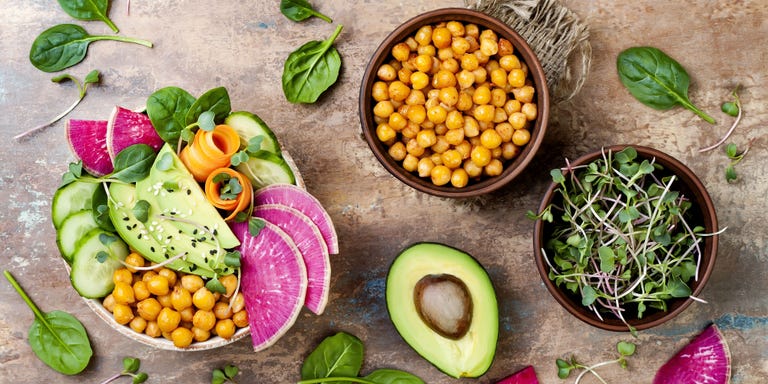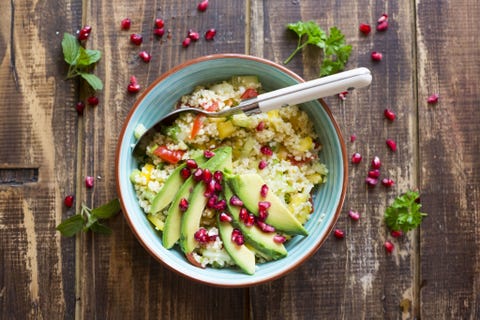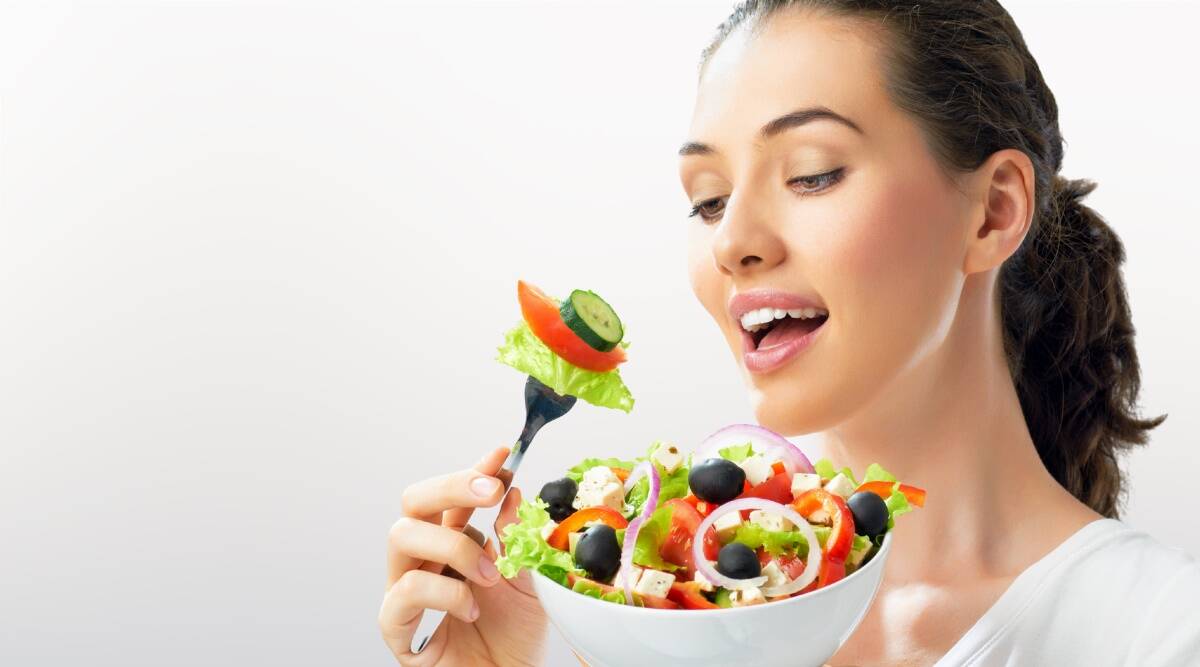
Veganism is officially in right now thanks to Beyoncé, who recently announced her decision to go vegan in the lead-up to Coachella. While Queen Bey is using meal delivery service 22 Days Nutrition, you don’t have to pay over $200 a week to follow suit.
A vegan diet encourages eating more wholesome, plant-based foods and cutting out animal products like meat, seafood, eggs, and dairy, whether it’s for ethical, environmental, or health-related reasons.
This eating style can be especially beneficial when you incorporate more nutritious foods you may have otherwise never picked or discovered. For example, you might try unsweetened soy or pea-protein milk or add extra beans to a salad instead of meat.
Filling your plate with fruits, vegetables, legumes, and whole grains should leave little space for less nutritious “food products.” Cutting out certain processed options may make your diet lower in saturated fat, sodium, and added sugar.
With that in mind, the potential downside applies when less nutritious, processed vegan products take the place of fruits and veggies. Those substitutes are often lower in protein and just as nutrient-poor as what you’re replacing in the first place. Eliminating animal products and ultimately eating mostly refined grains like white flour or rice won’t provide any health benefits either.
A restrictive diet isn’t for everyone — especially if you know you rely on packaged meals or snacks to fuel you on-the-go. That said, here’s what you should know about vegan diets before you give them a try:
1. YOU MAY LOSE SOME WEIGHT.
Evidence supports that vegetarians typically have lower body mass indexes than people who follow a more traditional, Western-style diet. Put simply, one gram of fat provides nine calories per gram, whereas one gram of carbohydrates or protein provides four. Therefore, high-fat meats and full-fat dairy products automatically contain more calories based on composition.
Additionally, a plant-based diet incorporates more fiber. The recommended daily allowance for adults is 25 grams per day for women and 38 for men. Only about half of us are meeting those needs! Diets rich in dietary fiber keep you fuller, longer — staving off cravings and unnecessary grazing that can lead to weight gain. Pulses (beans, chickpeas, lentils, and peas) are a great way to meet your fiber and protein needs on a vegan-style plan.
2. IT’S (SOMEWHAT) EASIER TO MAKE BETTER FOOD CHOICES.
The typical “Western diet” is traditionally associated with higher intake of saturated fats from meat and dairy. While strict veganism isn’t for everyone, there may be some delicious and nutritious ways to dabble in the trend.
When done right, adopting a “part-time” vegan diet can increase the plant foods in your diet while decreasing animal products high in saturated fat. Emphasizing whole grains, fruits, vegetables, and legumes force you to rethink the way you fill your plate.
Tip: Cutting your typical meat portion in half and doubling up on veggie servings is the best and easiest place to start.

3. YOUR IMMUNE SYSTEM COULD GET A BOOST.
Overall, plant-based diets are rich in important antioxidants that help your body to fight off anything from the common cold to a nasty flu. Immune-boosting nutrients include ascorbic acid (vitamin C), carotenoids (vitamin A), and vitamin E, as well as zinc, selenium, and copper.
Flavonoids — a type of polyphenolic compound found in plant foods — are also associated with boosting immune function by protecting cells from harmful damage. Plus, observational, epidemiological studies link vegetarianism to longer lifespans when compared to omnivores.
4. THERE ARE CERTAIN KEY NUTRIENTS TO WATCH OUT FOR.
The Academy of Nutrition and Dietetics identifies a few things to keep top-of-mind while following vegan or vegetarian diet, as they’re often found in abundance in animal products. Careful planning can prevent any potential nutrient deficiencies. Here’s what you should stay mindful of, as well as where to find them:
- B12:fortified cereals, soy, and rice milk
- Calcium: bok choy, broccoli, kale
- Vitamin D: sunlight, milk alternatives like soy and rice, breakfast cereals
- Omega-3 fatty acids: chia, flax, walnuts, canola oil, soy
- Iron: fermented foods (miso or tempeh)
You can also increase your body’s absorption of iron by consuming lot of vitamin C, zinc (found in soy, legumes, grains, and nuts), and iodine (in soy beans, cabbage, broccoli, and sweet potatoes).
THE BOTTOM LINE
Restrictive diets — whether they eliminate entire food groups or nutrients as a whole — are only as good as the foods you replace the “missing ones” with. With that in mind, your best bet is to opt for a more plant-based diet.
By choosing some vegan diet principles that fit your lifestyle (e.g., deciding to stop adding cheese to 100% of your meals), you’ll make healthier choices you can stick to. That’s because the healthiest diet is any diet that works best for you and meets your personal needs.
[“source=hindustantimes”]




















